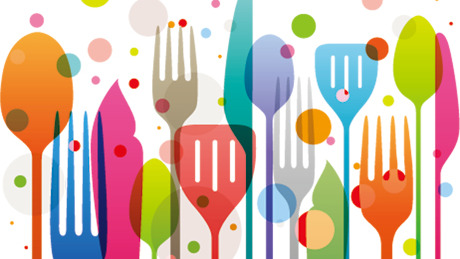Free Coursera Online Courses for Foodies and Food Bloggers
Following my enrolment in Writing in The Sciences course at Coursera, which very much applicable to food blogging as well, I also found other courses that are even more related to eating and culinary world. One related with nutrition and healthy lifestyle, while the other take a deeper look into gastronomy from the scientific point of view.
While the first is scheduled to be held in April 2013, and the other one has no definite date yet, you might want to sign up early to keep up with the course's latest update.
www.coursera.org/course/lifenutr
This seven week course will explore nutrition concepts that take center stage in mainstream media outlets and become conversation topics among consumers interested in food choice as it relates to optimal health and physical performance.
Next session: April 2013 (7 weeks long)
Workload: 2-4 hours/week
Course Syllabus:
Recommended Background:
www.coursera.org/course/scigast
This course introduces students to elements of science lying behind cooking and cuisine preparation. The ultimate goal is to help students recognize the importance of scientific principles being applied in everyday life, so that they will appreciate and be able to apply some of these principles in their future cooking practice.
Next session: To be announced (6 weeks long)
Workload: 3-4 hours/week
Course Syllabus:
Recommended Background:
Suggested Readings:
Reference text:
While the first is scheduled to be held in April 2013, and the other one has no definite date yet, you might want to sign up early to keep up with the course's latest update.
Nutrition, Health, and Lifestyle: Issues and Insights
Jamie Pope, MS, RD, LDNwww.coursera.org/course/lifenutr
This seven week course will explore nutrition concepts that take center stage in mainstream media outlets and become conversation topics among consumers interested in food choice as it relates to optimal health and physical performance.
Next session: April 2013 (7 weeks long)
Workload: 2-4 hours/week
Course Syllabus:
- Week One: Just What is a Healthy Diet? A Balancing Act
- Week Two: Nutrition Labeling: Facts, Claims, and Challenges
- Week Three: Dietary Supplements: Evaluating the Evidence
- Week Four: Fortified and “Super” Foods: Their Role in Optimal Nutrition
- Week Five: Plant-based Nutrition: Controversies and Considerations
- Week Six: Nutrition and Fitness: Facts, Food, and Fuel
- Week Seven: Food Allergies and Intolerances: Separating Fact from Fiction
Recommended Background:
- No background required, all are welcome!
The Science of Gastronomy
King Chow, Lam Lung Yeungwww.coursera.org/course/scigast
This course introduces students to elements of science lying behind cooking and cuisine preparation. The ultimate goal is to help students recognize the importance of scientific principles being applied in everyday life, so that they will appreciate and be able to apply some of these principles in their future cooking practice.
Next session: To be announced (6 weeks long)
Workload: 3-4 hours/week
Course Syllabus:
- Gastronomy: cuisine preparation, the chemical and physical principles
- Enjoyment of Food: parameter of excellence - the basis of taste
- The Basis of Flavor: the aroma and taste-aroma interactions
- Aroma and Coloring: coloring-association and improvement of perception
- Texture of Food: the highlight of contrast
- Fruits and Vegetables: properties, nutrition and enhancement of quality in cooking
- Meat: properties, taste, aroma and texture
- Meat: ways to modify the texture, enhance the taste and smell of meat
- Meat: precision cooking - how to cook a perfect steak?
- Sauce: modification of the viscosity and flavor of sauce
- Dessert: manipulation of desired texture: gluten formation and protein denaturing
- Examples of Dessert Making: ice-cream with liquid nitrogen and ginger milk curd
Recommended Background:
- No pre-requisite of any science background is required. Only high school level science is required.
Suggested Readings:
- This, Herve (2007) Kitchen mystery. Columbia University Press, New York.
- McWilliams, Margaret (2006) Food Fundamentals, 8th Ed. Pearson, Prentice Hall, Inc. New Jersey.
Reference text:
- Corriher, Shirley O. (1997) Cookwise: the hows and whys of successful cooking. Harper Collins Publishers, Inc., New York.
- McWilliams, Margaret (2005) Foods – experimental perspectives, 5th Ed. Pearson, Prentice Hall, Inc. New Jersey.
- Shepherd, Gordon M. (2012) Neurogastronomy. Columbia University Press, New York.
- This, Herve (2005) Molecular Gastronomy. Columbia University Press, New York.


0 comments:
Post a Comment